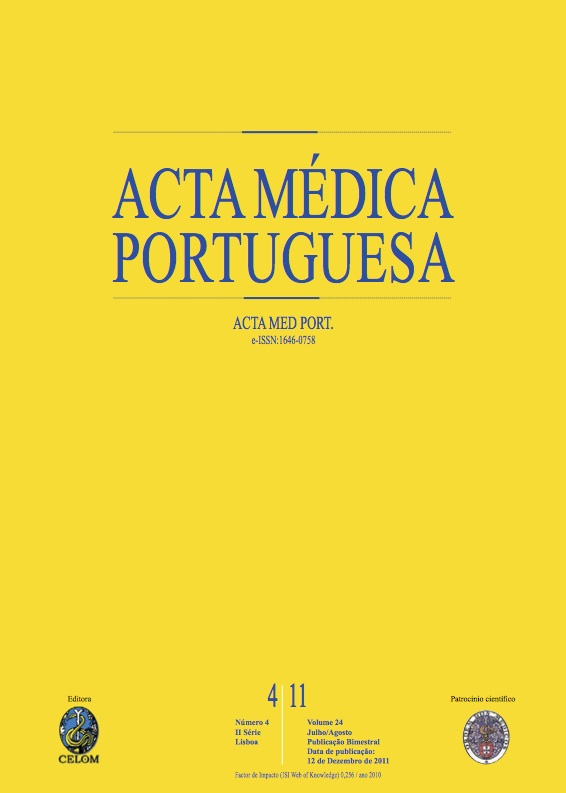Comparative study of end-of-life care in an internal medicine ward and a palliative care unit.
DOI:
https://doi.org/10.20344/amp.487Abstract
Dued to ageing population and growing of chronic advanced illnesses, nowadays, the majority of deaths take place in hospitals. Terminal patients with cancer and other non-malignant diseases share the same type of problems which, once correctly accessed, may have similar approach. Inappropriate terminal care can lead to unnecessary suffering of patients and their families.A retrospective chart review was done for the first 96 patients who died in 2005 due to advanced chronic illnesses in a Internal Medicine ward (48 patients) and in a Palliative Care unit (48 patients). The main outcome was the documentation of the presence/absence of a group of symptoms, the ability of the medical staff to perceive the patients as dying and the adjustments made in the comfort care plans.There were no demographic differences between the two sets of populations. In the Internal medicine ward it was seen an acute pattern of treatment even though the situation was clearly chronic and advanced. In the Palliative Care Unit there was a systematic surveillance and assessment of symptoms and other problems, like psycho-spiritual needs. In both environments, pain, dyspnoea and gastrointestinal problems were the symptoms most frequently recorded in clinical charts. The number of symptom recordings entered diminished in the agonic phase.These data highlight the need for a better assessment of patients' needs in order to promote impeccable end-of-life care.Downloads
Downloads
How to Cite
Issue
Section
License
All the articles published in the AMP are open access and comply with the requirements of funding agencies or academic institutions. The AMP is governed by the terms of the Creative Commons ‘Attribution – Non-Commercial Use - (CC-BY-NC)’ license, regarding the use by third parties.
It is the author’s responsibility to obtain approval for the reproduction of figures, tables, etc. from other publications.
Upon acceptance of an article for publication, the authors will be asked to complete the ICMJE “Copyright Liability and Copyright Sharing Statement “(http://www.actamedicaportuguesa.com/info/AMP-NormasPublicacao.pdf) and the “Declaration of Potential Conflicts of Interest” (http:// www.icmje.org/conflicts-of-interest). An e-mail will be sent to the corresponding author to acknowledge receipt of the manuscript.
After publication, the authors are authorised to make their articles available in repositories of their institutions of origin, as long as they always mention where they were published and according to the Creative Commons license.









